Qatar is very much in the headlines today but back in 1963 it was just one of many little-known Gulf states enjoying the early riches of the post-war oil boom.
My contact with Qatar came when the then Sheikh, Ahmad Bin Ali Al Thani, had acquired a lakeside chateau near Geneva.
He and his court and entourage came to escape the high summer heat in the Gulf – and do a bit of shopping.
Back then I was living in Geneva (my parents both worked there) and I was looking for a summer job, when someone suggested the Sheikh of Qatar needed chauffeurs during his summer stay.
To the chateau
I found a phone number, rang up. and within a day I was taken to the chateau at Versoix, about seven miles from Geneva, by a mournful, beefy Lebanese called Kassab.
I showed him my Swiss taxi driver’s licence and he took me to a line of 10 double garage doors which all opened at the touch of a button—something I had never seen in my 22 years.
The doors rolled up to reveal an Aladdin’s cave of cars—three Rolls Royces, three Cadillacs, three Mercedes, a Facel Vega, an Oldsmobile 88 and several other head-turners I now forget.
Kassab pointed to the Oldsmobile. “Let’s see how you drive.”
Left-hand drive Oldsmobile automatic
I climbed gingerly in (left-hand-drive of course) and gaped at the dash.
It was automatic (they were rare back then) and I told him I’d never driven one, so he said forget your left foot and remember the D, N and R indicator stands for drive, neutral and reverse.
I started the engine, put it in reverse and pressed the accelerator.
Six litres of US V8 engine rocketed the car back almost into a vast ornate flower bed, but I braked just in time.
It says much for Kassab that he didn’t fire me on the spot, and quite quickly we got on well. I learned the quirks of American automatics and coped with them without a hiccup all summer.
The Sheikh and his entourage were due to arrive by boat in Venice two days later so Kassab and I and two other drivers took an overnight sleeper train to Venice.
We were to collect the three cars the Sheikh was bringing with him. Keen to look smart, I went in a black suit, white shirt and dark tie and shoes.
Venice basked in sunshine and 100% humidity so by the time the cars had cleared customs, my suit was stuck to me with sweat.
Now, a Ford Thunderbird
Once in the car (a white Ford Thunderbird with red leather seats) and heading along the autostrada towards Geneva, I squirmed out of my jacket and pants.
I was driving in my underpants and open shirt at 90mph in the outside lane when a Fiat 500 doing 45 pulled out to overtake a van.
To this day I don’t know how I avoided a crash. But my final thought was the Carabinieri would find this crashed Thunderbird with some pervert driver in his unmentionables dead in the wreckage.
Once the Sheikh and party were in Geneva (they went by train), I was assigned to drive his daughter —I suppose here she should would be the Princess Royal — and her entourage.
These were her two children, an older woman whom I assumed was a kind of lady-in-waiting, a young male servant called Nasser and a stout Lebanese woman.
The latter spoke French (as I did) and passed instructions to me, asked questions and sometimes sought advice on where to go.
A 21-foot red Cadillac
To drive the six-strong party, I was assigned a red 21-foot Cadillac with dark rear windows, jump seats and (wait for it) gold-plated number plates, Q1.
It was about as unobtrusive as a tarantula on a custard pie, and I developed a love-hate relationship with the car, although I always had feelings of great respect for my passengers.
A day’s driving with the group tended to follow a pattern. Collect them from their hotel—they did not stay at the chateau (only the menfolk stayed there), take them to a bank (usually the Ottoman Bank) then do a round of shopping to buy clothes, shoes, jewellery and (it being Geneva) watches.
They would sometimes buy 30-40 or more pairs of shoes, similar quantities of other items and of course always from the best shops, who would roll out the red carpet when they saw who was coming to call.
The problem was the ladies expected me to park and wait—totally impossible in congested Geneva awash with no-parking signs.
How the very rich shop
They would tell me to come back in 10 minutes but often stayed an hour or more in each shop. No mobile phones then, so all I could do was drive repeatedly around the block until they emerged.
That attracted police attention and they made my life very disagreeable, often threatening to charge me with kerb-crawling. But what else could I do?
Once, back at the hotel, the Princess Royal asked me to take Nasser to buy some chocolates.
From a deep pocket she took a vast roll of banknotes, in all several thousand Swiss francs, and gave me a couple of 20s. Then she placed the roll on the car bonnet. A puff of wind blew it into the gutter, but she didn’t notice and went off into the hotel.
I picked up the money, ran after her and returned it but often wonder if I hadn’t been so scrupulous, would it have changed my life?
Chocolate caution
Even buying the chocolates was a drama. Nasser took a shine to two gorgeous boxes, but they were liqueur chocolates and I knew they would not have met with approval.
My then non-existent Arabic made no headway until I said, “Whisky!” He got the message and opted for something else.
I only twice was directly involved with the Sheikh himself. Once was when he and his entourage went on a drive to Evian, a noted resort and spa on the French shore of the lake.
They had booked a lunch at a Michelin-starred hotel and all five or so chauffeurs got to eat in the hotel staff canteen.
We had barely finished the starter when word came down that the Sheikh wanted to go home, so it was jackets on and out to the cars, lamenting the lunch we had missed.
Just eat with the Sheikh…
I will never forget the day I returned late to the chateau after the staff lunch break had finished. No problem, said the chef, just go upstairs and eat with the Sheikh and his party.
To my amazement, I was pointed to a rug to sit on—everyone bar the Sheikh was on the floor—and I stared at whole sides of roast sheep and amazing platters of salads.
Someone saw my perplexed look and kindly placed a chunk of mutton and some salad on a plate and handed it to me. As everyone ate with their fingers, so did I.
The Sheikh, on an elevated dais, was flanked by two men, one dressed in western clothes, the other small and hunched in a strange buff-coloured costume.
A personal food taster
The western-clad man was the Sheikh’s food taster, sampling everything to see it was safe. The hunched man was the court jester, derisively called Captain.
His job was to make them laugh but it was an uphill task—I got the impression they tended to use him as the butt of their jokes….
One servant I got quite attached to was the court coffee maker. He sat in a corner of the chateau’s entrance hall with a charcoal brazier and brewed green coffee beans in gorgeous brass coffee pots with minaret-shaped lids and pelican beak-shaped spouts.
The first time I sat with him, I drank the coffee and handed back my cup, nodding my thanks. He promptly refilled it, and continued to do so each time, even though I tried everything to stop him.
An amused old hand who spoke French then told me to hand my cup back upside down. That was the Arab way of saying I’ve had enough….
I can recall 101 other episodes and anecdotes from my months of driving for the Sheikh and his court.
A time of innocence
It was the chance of a lifetime and reminds me how innocent the world then was.
That I could ring up on spec and be instantly recruited to drive a country’s head of state and his family without any checks or questions is totally unthinkable today.
My stint with the Sheikh came back to me unexpectedly some years later. A family friend married a former Geneva policeman and I was invited to the wedding.
At the reception in the hotel, my parents and I lined up to meet and congratulate the bride and groom.
He took one look at me, winked and said, “Red Cadillac, Q1”
Some folk never forget.
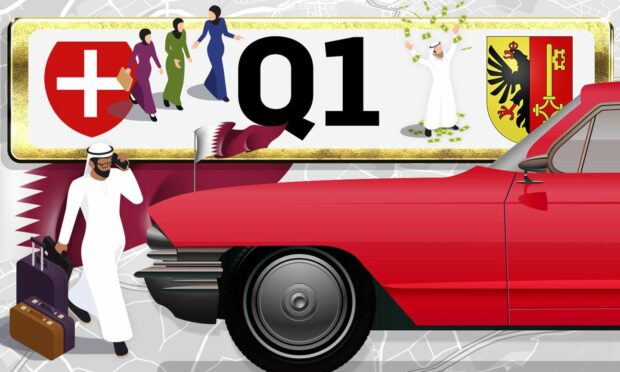

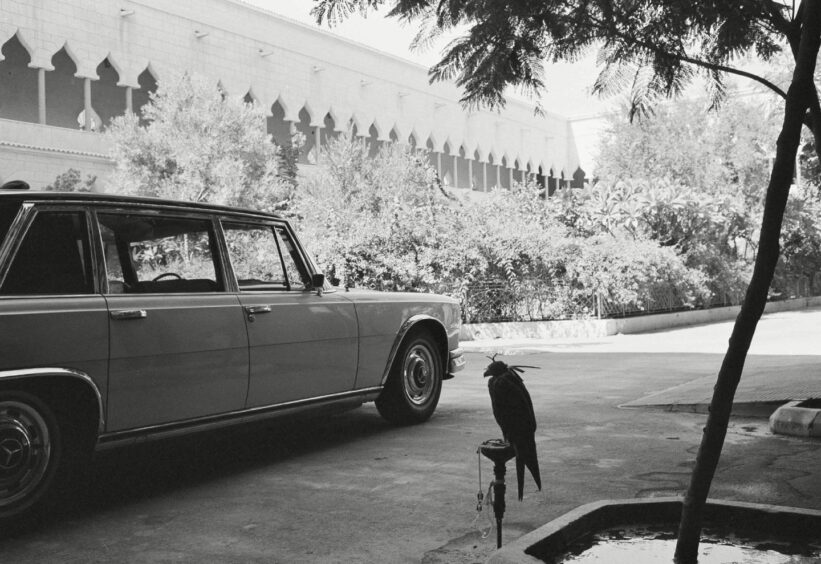
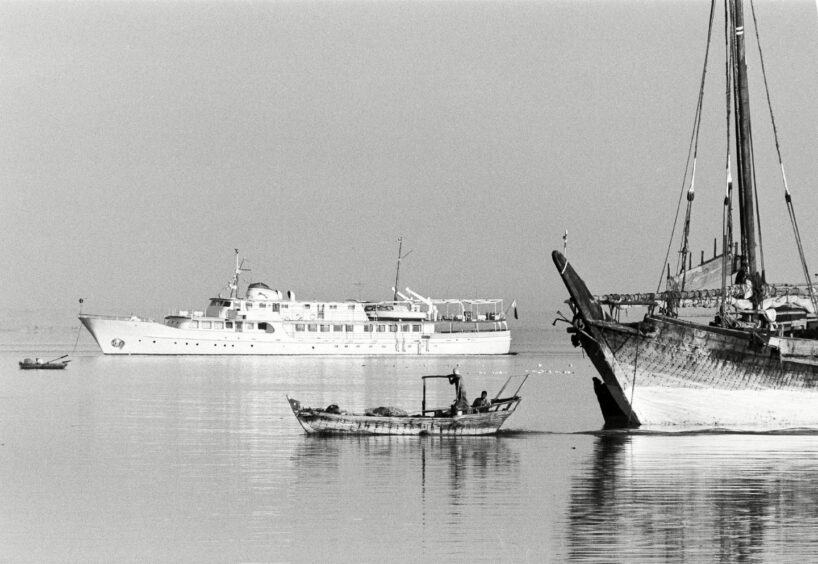
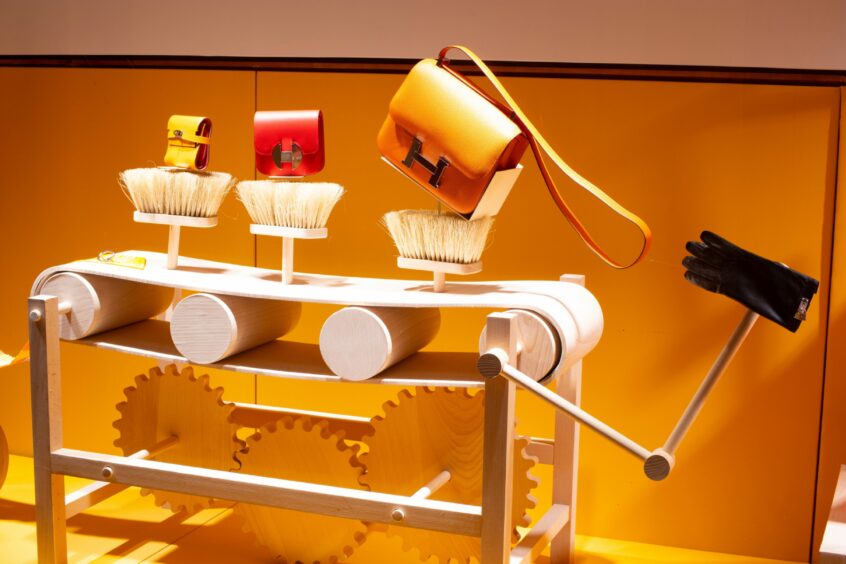
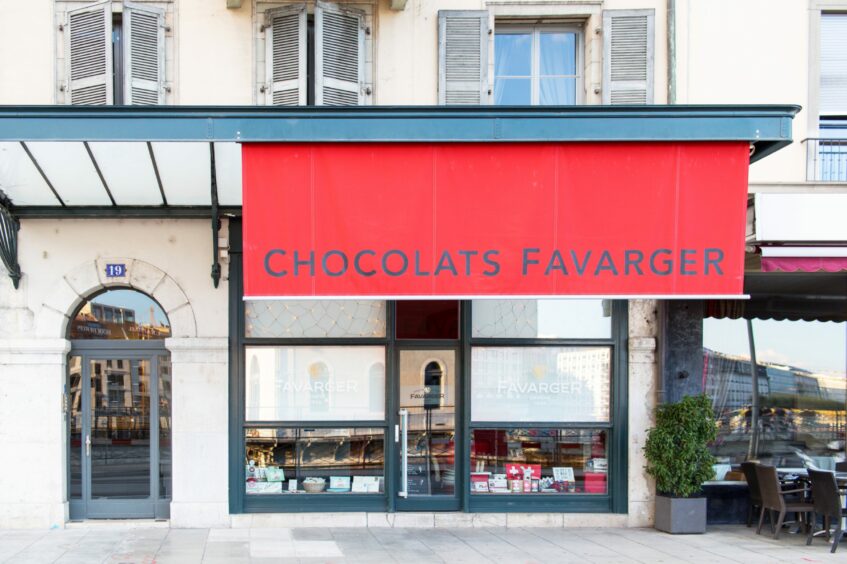


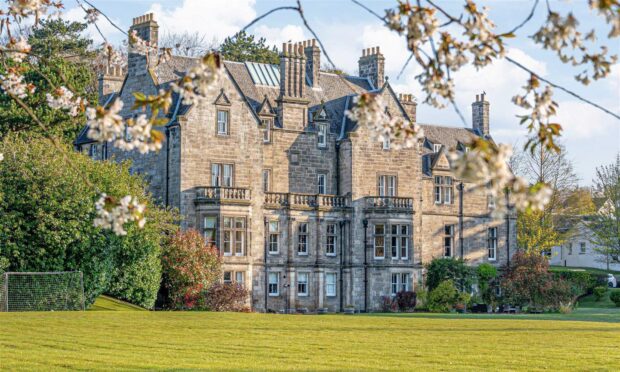
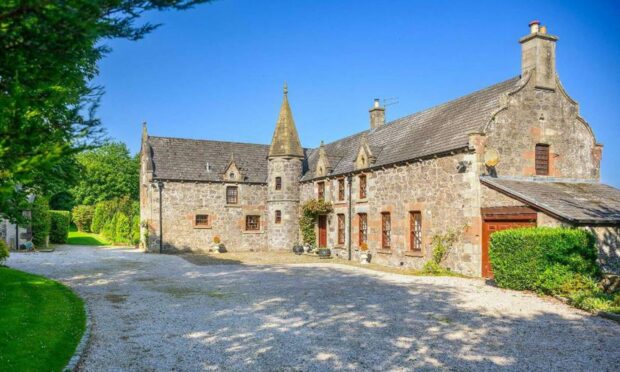
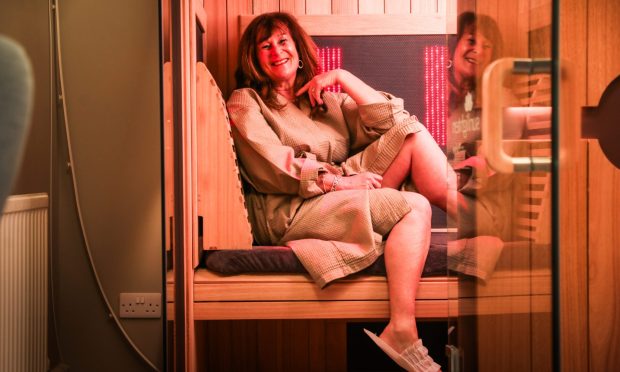
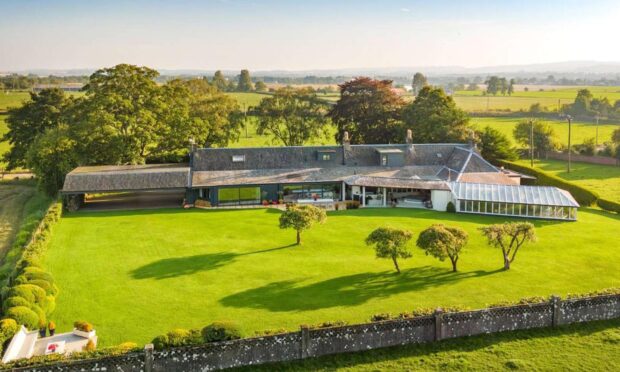

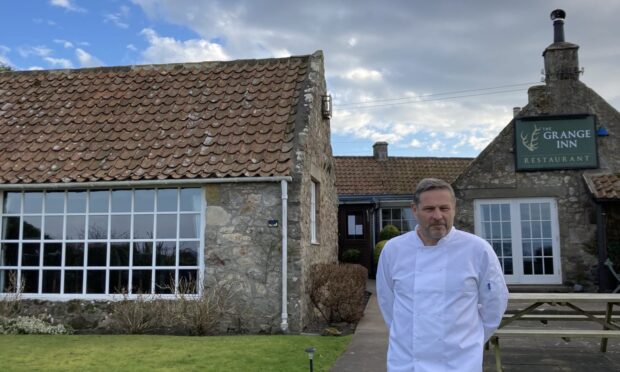
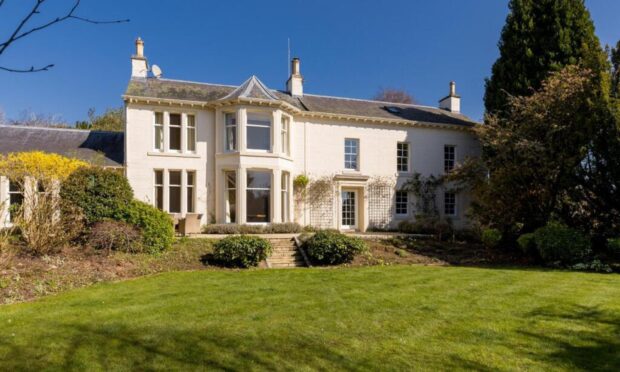
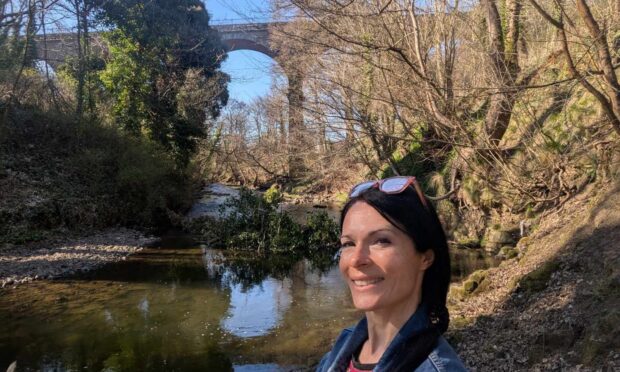
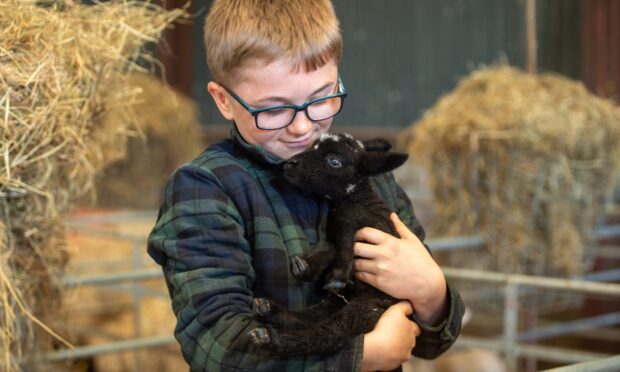
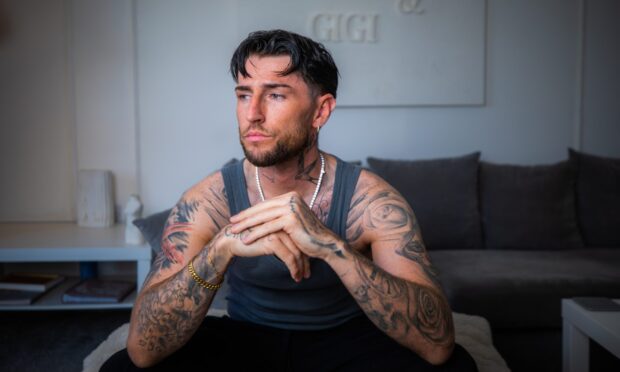
Conversation